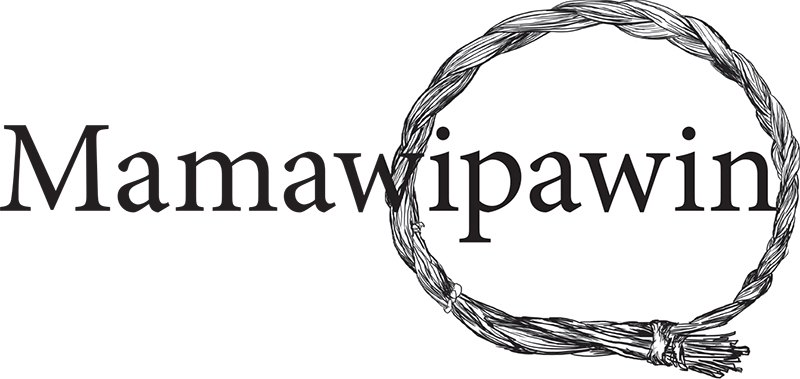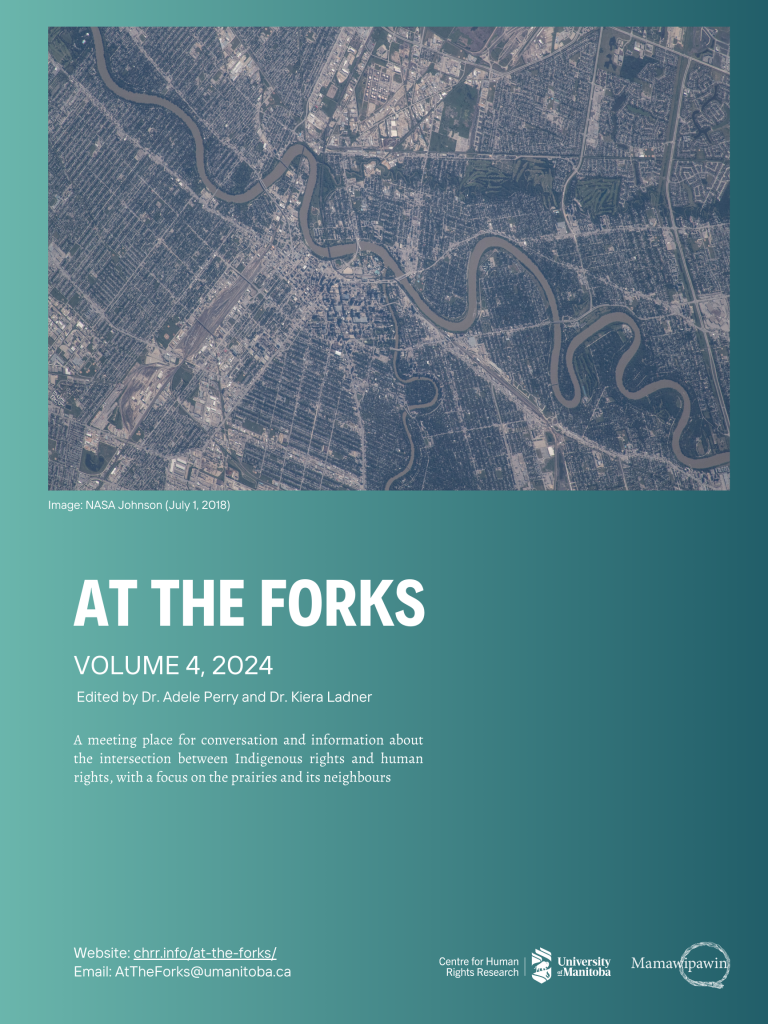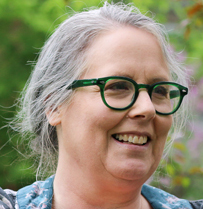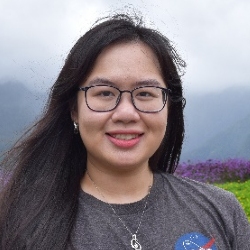
Questions of Indigenous and Human Rights are central questions of the forks of the Red and Assiniboine Rivers, or modern-day Winnipeg, as are questions of Indigenous people, places and communities, and their relationships to settler society and government, are central for the Prairie provinces. In the past years, historians, political scientists, geographers, sociologists and literary scholars have directly and critically addressed the prairies’ particular histories of settler colonialism and the ways it has produced lived realties of violence, marginalization, poverty, and too often death for Indigenous people. At the same time, scholars have shown how Indigenous people have both formally and informally resisted settler colonialism and built and nurtured communities and resistance and dispossession
At the Forks: Where Indigenous and Human Rights Intersect is:

A virtual meeting place for conversation and information about the intersection between Indigenous rights and human rights, with a focus on the prairies and its neighbours.

An open-access platform to highlight scholarship that engages in critical conversation around the connections, tensions, limits, and possibilities of Indigenous and human rights.


A collaboration between the University of Manitoba’s Centre for Human Rights’ Research (CHRR) and Mamawipawin – the Indigenous Governance and Community Based Research Space.
Call For Submissions

Latest
At The Forks
Vol. 4 No. 1 (2025)
This is the fourth volume of At the Forks, a project that began in 2021. This was a time of social distancing, changing patterns, and public health regulations adopted in response to the COVID-19 pandemic. Our goal was to develop a platform for accessible, engaging research that speaks to the pressing questions for people who live where the Centre for Human Rights Research (CHRR) works, and territories and communities connected to them. These include Indigenous people, lands, and waters amid a colonial project that has not ended. These also include questions of justice for migrant people, whether of the early twentieth century or today. Our questions also include the histories and rights of people as gendered subjects at a moment when reproductive rights and the rights of people to make decisions about their gender presentation and care are under threat.
At the Forks Staff
Funding
At the Forks would like to acknowledge the financial contributions of the Social Sciences and Humanities Research Council (SSHRC), and our contributing partners around the University of Manitoba including the Margaret Lawrence Endowment Fund, Women’s and Gender Studies, Department of History, and the Faculty of Arts.






